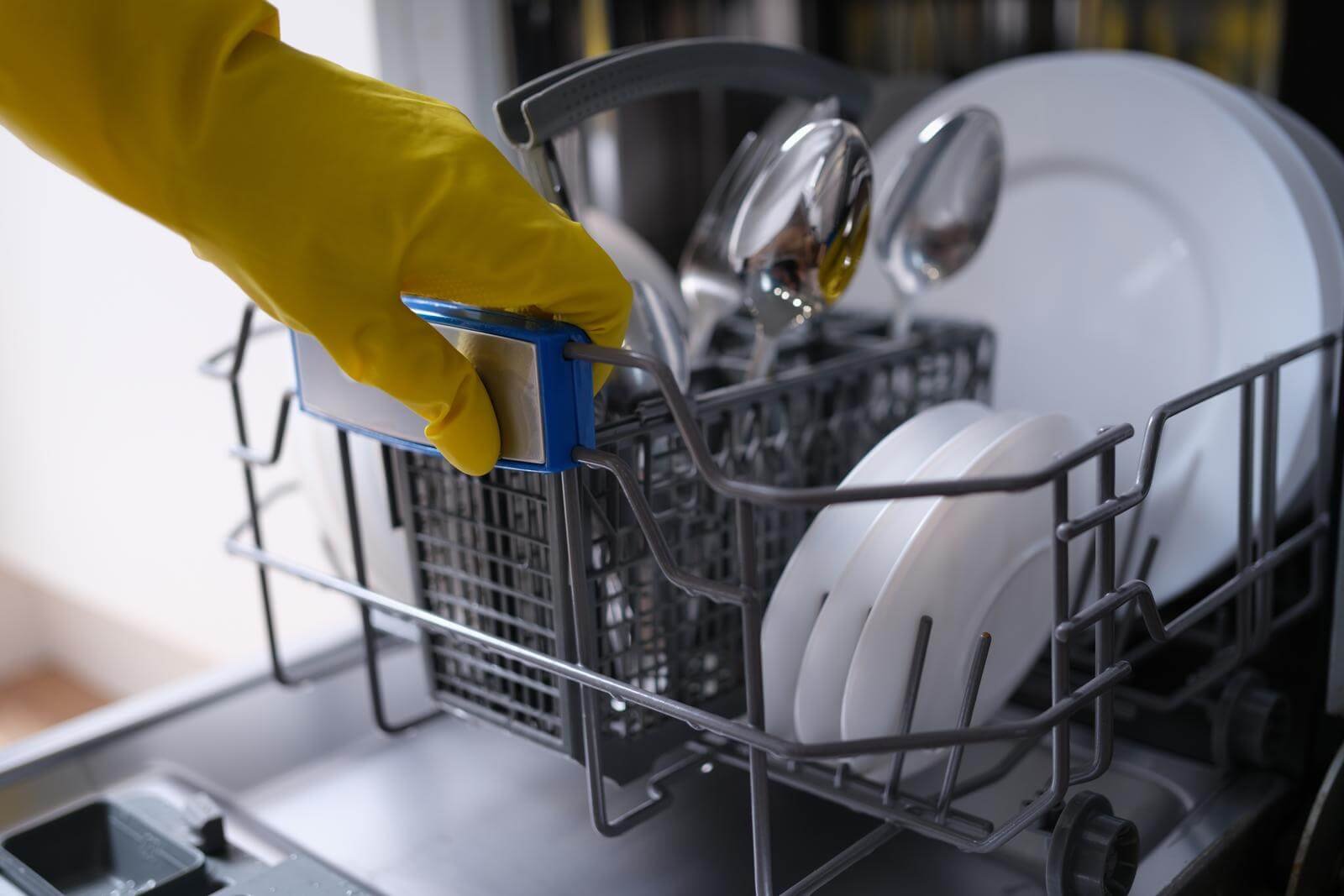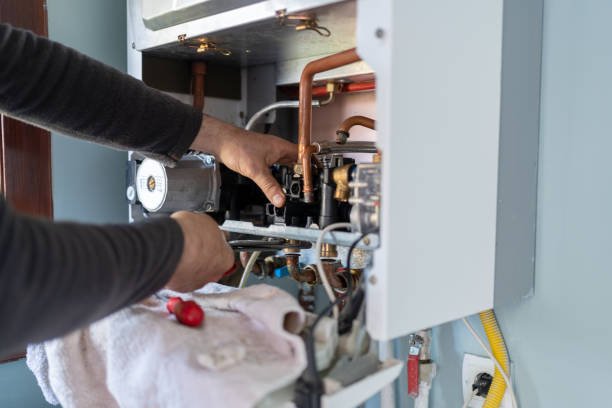Preventative measures to avoid frequent dishwasher repairs are essential for homeowners who value efficiency and longevity in their appliances. In Melbourne, where busy lifestyles demand reliable household equipment, keeping your dishwasher in top condition is more important than ever. By adopting simple maintenance habits, you can save money, extend your dishwasher’s lifespan, and enjoy spotless dishes every time.
1. Regularly Clean the Dishwasher Interior
A clean dishwasher operates more efficiently and reduces the risk of breakdowns.
- Remove Food Debris: After each cycle, check and remove any leftover food particles from the tub.
- Wipe Down Surfaces: Use a soft cloth and mild detergent to clean the door, gasket, and walls weekly.
- Deep Clean Monthly: Run an empty cycle with a cup of white vinegar placed on the top rack to eliminate grease and odors.
2. Maintain the Filters
Clogged filters can lead to poor cleaning performance and strain the dishwasher’s components.
- Check Filters Weekly: Locate the filter at the bottom of the dishwasher and inspect it for debris.
- Rinse Under Warm Water: Gently scrub the filter with a soft brush to remove trapped particles.
- Replace When Necessary: If the filter shows signs of damage, replace it according to the manufacturer’s guidelines.
3. Use the Right Detergent and Rinse Aid
The products you use impact your dishwasher’s efficiency and longevity.
- Choose Quality Detergents: Opt for reputable brands that are compatible with your machine.
- Avoid Overusing Soap: Excess detergent can cause buildup and mechanical issues.
- Add Rinse Aid: This helps prevent water spots and ensures dishes dry properly.
4. Load Dishes Properly
Improper loading can obstruct water flow and damage internal components.
- Follow Manufacturer Guidelines: Refer to your manual for optimal loading patterns.
- Avoid Overloading: Ensure that dishes are not overcrowded, allowing water to circulate freely.
- Secure Small Items: Place utensils and smaller items in the designated compartments.
5. Inspect and Clean Spray Arms
Blocked spray arms hinder cleaning performance and can cause mechanical strain.
- Remove and Inspect Monthly: Check for clogs in the spray holes.
- Clean with a Toothpick: Gently remove debris without scratching the surface.
- Rinse Thoroughly: Wash under running water before reinstalling.
6. Check and Maintain Door Seals
Damaged seals can lead to leaks and water damage.
- Inspect Seals Regularly: Look for cracks, tears, or signs of wear.
- Clean Seals Monthly: Wipe with a damp cloth to remove residue and prevent mold.
- Replace if Necessary: If seals are compromised, replace them promptly.
7. Monitor Water Temperature
Proper water temperature enhances cleaning efficiency and protects internal components.
- Set Heater to Optimal Temperature: Ensure your water heater is set between 49°C and 60°C (120°F to 140°F).
- Run Hot Water Before Starting: Let hot water flow in the sink to ensure the dishwasher fills with hot water immediately.
8. Use Your Dishwasher Regularly
Regular use prevents seals from drying out and keeps the motor functioning properly.
- Run at Least Once a Week: Even if not full, running a short cycle maintains the dishwasher’s health.
- Use Energy-Saving Cycles: Eco-friendly settings conserve water and energy while keeping the machine active.
9. Avoid Overloading the Detergent Dispenser
Excess detergent can cause buildup and mechanical issues.
- Follow Dosage Recommendations: Use the amount specified by the detergent manufacturer.
- Keep the Dispenser Clean: Wipe away any residue to ensure proper opening and closing.
10. Check Hoses and Connections
Leaks and water damage often result from faulty hoses.
- Inspect Annually: Look for signs of wear, cracks, or leaks.
- Ensure Tight Connections: Secure all fittings to prevent water escape.
- Replace Old Hoses: If hoses are over five years old, consider replacing them as a preventative measure.
11. Be Mindful of Hard Water Issues
Melbourne’s water is generally soft, but some areas may experience mineral buildup.
- Use a Water Softener: If you notice mineral deposits, consider installing a softener.
- Clean with Lemon Juice: Run a cycle with lemon juice to break down limescale naturally.
12. Turn Off the Dishwasher When Not in Use
Power surges can damage electronic components.
- Unplug During Storms: Protect your appliance during electrical storms.
- Use Surge Protectors: Install a surge protector to safeguard the dishwasher’s circuitry.
13. Schedule Professional Maintenance
An expert eye can spot issues before they become major problems.
- Annual Check-Ups: Hire a certified technician to inspect and service your dishwasher yearly.
- Stay Within Warranty Guidelines: Professional maintenance can keep your warranty valid.
14. Avoid Using Harsh Chemicals
Strong chemicals can corrode parts and damage seals.
- Use Dishwasher-Safe Cleaners: Stick to products designed for dishwashers.
- Avoid Bleach and Abrasives: These can harm the interior surfaces and components.
15. Keep the Exterior Clean
A well-maintained exterior reflects the care given to the appliance.
- Wipe Down Regularly: Use a damp cloth to clean the door and control panel.
- Avoid Excess Moisture: Prevent water from seeping into electronic parts.
Benefits of Preventative Maintenance
Taking proactive steps offers numerous advantages:
- Extend Appliance Lifespan: Well-maintained dishwashers last longer.
- Improve Efficiency: Clean machines operate more effectively, saving energy and water.
- Reduce Repair Costs: Preventative care minimizes the need for expensive fixes.
- Enhance Performance: Enjoy consistently clean and dry dishes.
Conclusion: Invest in Care for Long-Term Savings
Preventative measures to avoid frequent dishwasher repairs are simple yet highly effective. By incorporating these practices into your routine, you ensure that your dishwasher remains a reliable partner in your kitchen. Melbourne homeowners can particularly benefit from these tips, given the city’s commitment to sustainability and efficient living.



